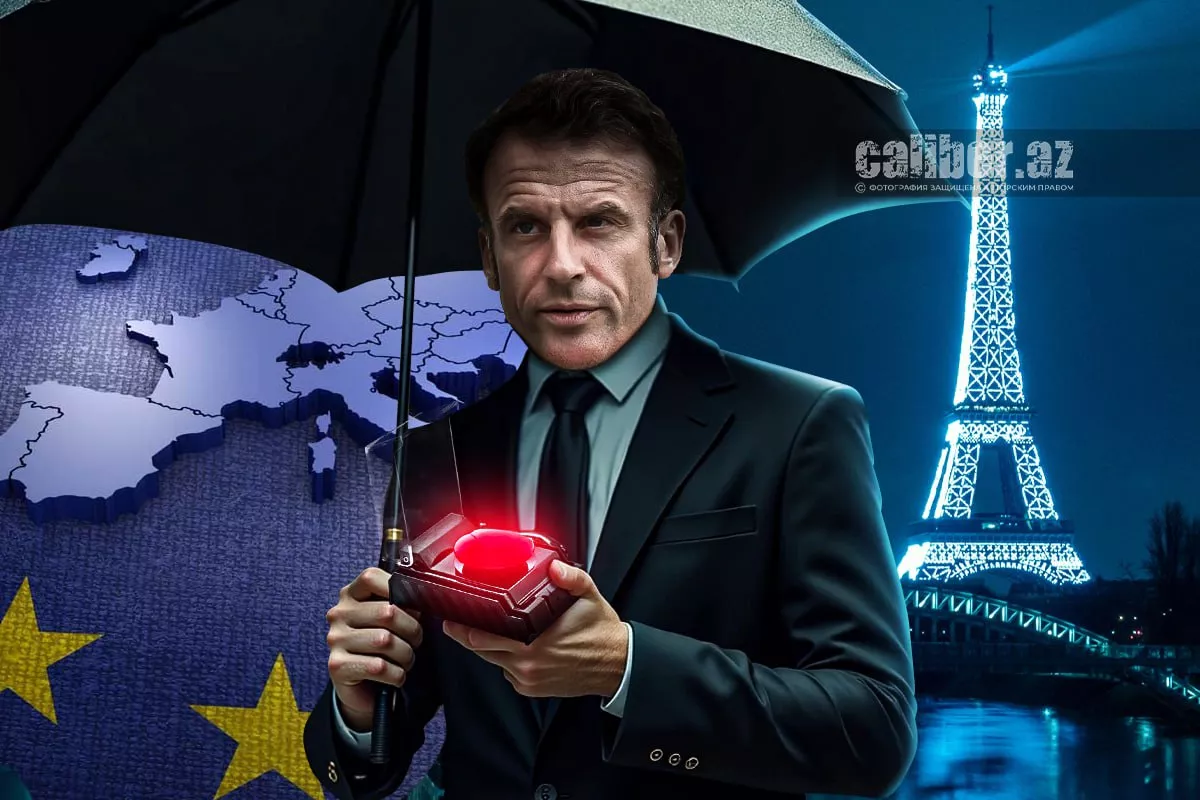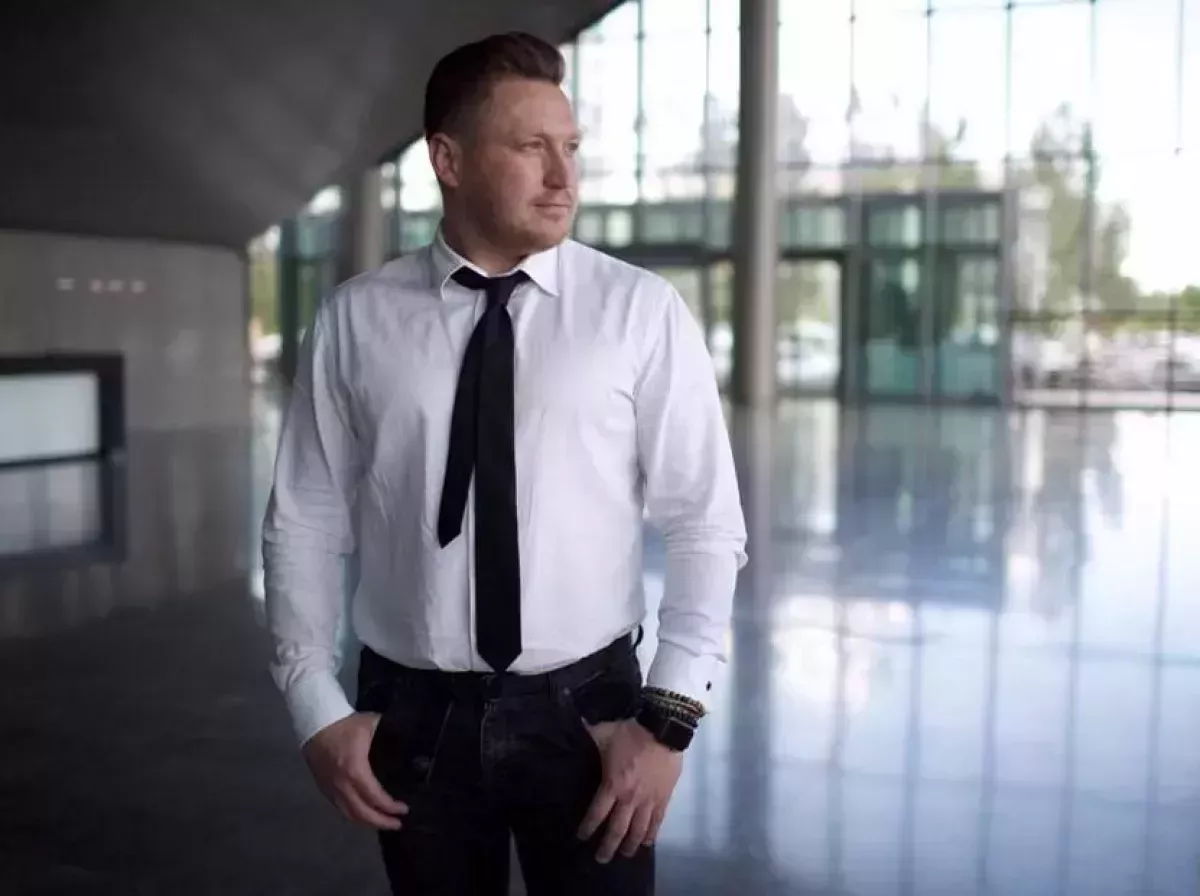How Macron is sinking France Analysts warn of political and social collapse
Under President Macron, France is like a sinking ship, descending toward some kind of political “bottom.” At least, such a conclusion seems inevitable when observing the prevailing mood in French society after the collapse of the country’s fourth government in just a couple of years, the losses France has suffered due to Macron’s failed foreign policy, and the nation’s constant exposure to protests and demonstrations.
All of this is being watched by a shocked Europe. For example, Finland’s Helsingin Sanomat notes that the French are disappointed and have lost faith in politicians’ ability to effect any real change.
“Trust has been lost not only in politics but also in the media and a number of state institutions. On such a foundation, nothing solid or lasting can be built. For many years, the only constant in the country has been the citizens’ rejection of one government after another, and of Macron himself,” the publication states.
Meanwhile, French historian Nicolas Rousselie, in an article for The Conversation France, points out that Macron’s presidency is forcing France to reconsider the very structure of its government.
“The Fifth Republic [with the strong position it accords the president] initially brought stability to the government and served as a driving force for the country's modernisation and social progress. That is no longer the case. The disappearance of a stable majority to support the president, compounded by the revelation of the colossal debt burden, is plunging us into disillusionment about the virtues attributed to the Fifth Republic. For the first time since the creation of the Fifth Republic in 1958, there is no other option but to return to the parliamentary system,” the French historian argues.
What do foreign experts and political analysts think about the direction President Macron is taking the Fifth Republic? Caliber.Az spoke on this topic with an Israeli international affairs expert and a Belarusian Francophone specialist.
Rostislav Goltsman, an Israeli journalist and publicist, and head of the International Relations Commission of the Union of Journalists of Israel, believes that Macron’s actions are best assessed by the results of his political course and his work as President of France.

“It should be noted that France is traditionally remembered by the names of its most charismatic and memorable presidents. Each of them, of course, in their own way, received very different assessments of their work, but they were personalities. Just think of Charles de Gaulle, François Mitterrand, Valéry Giscard d’Estaing, Jacques Chirac. These were figures who were judged ambiguously even during their lifetimes—from admiration for de Gaulle to accusations of corruption during Chirac’s era. Yet they were still historical figures of great significance,” the expert said.
He also emphasised that the situation with Emmanuel Macron has developed differently.
“When he was elected, there was a kind of euphoria in France. For the first time, a president appeared who was neither left nor right, breaking conventions both in his personal life and in politics. He truly dismantled many familiar patterns, and the French felt: we chose him because he is different from everyone else. The French character, with its reluctance to take sides, played a role—the people preferred something in between, neither right nor left. Riding this wave, Macron won.
The first year of his presidency was accompanied by genuine euphoria: normally, leaders are given a hundred days of grace, but he was given a whole year. The French were delighted to have such an unconventional leader. However, after a year, when it was time not to juggle slogans but to work and organise the life of the country, everything changed. Life did not improve—it only worsened, and public mood shifted.
The popularity of Marine Le Pen’s party began to rise, marking the start of a period of serious political instability. Four governments collapsed, and a stable coalition in parliament could not be formed. Macron, absorbed in opposing Le Pen and ceding districts to the far-left, made a major mistake, depriving the country of the possibility of a unified right- or left-wing government and leading it from crisis to crisis, plunging it into internal uncertainty,” the political analyst stated.

Analysing the foreign policy of the French president, Rostislav Goltsman noted: “One would think the French should focus on solving domestic problems. But Macron increasingly pursued international ambitions, clearly seeing himself as a kind of Mikhail Gorbachev—more popular abroad than at home. Yet even if that comparison were taken seriously, Macron didn’t reach that level. His claims of being a new superpower, opposing the Americans, and imposing his vision on the South Caucasus and the Middle East looked less like a coherent strategy for France and more like personal ambition. After all, the Fifth Republic has long ceased to claim the role of a great power, yet it remains a world leader in the number of colonies it prefers to call overseas territories, accusing everyone else of colonialism—but never itself. In the end, all of Macron’s attempts only further damaged France’s reputation and undermined its economy.”
According to the expert, Macron’s foreign policy failures are more numerous than the stars in the sky: “First and foremost, the crisis affected the Israel issue. In Macron’s France, the streets are in chaos, governments collapse, and he responds by blaming Israel for everything.”
Goltsman also recalled Macron’s personnel decisions: “When forming the fourth government, he no longer knew what to do. He even pulled François Bayrou out of the archives as a compromise figure, but that didn’t work either. Thus, France, once a powerful country associated with de Gaulle and other strong leaders, was reduced to a level where its authority collapsed both at home and abroad. Today, it is a country ready, without a single shot or attempt at resistance, to raise the flags of others. The French explain it in their own way, but in the 21st century, it looks like a sad tradition—let us recall how they surrendered Paris to the Nazis, raising their flags. And now history is repeating itself: national symbols are being replaced by the symbols of foreign movements.”
According to the political analyst, the world is witnessing an unprecedented failure and humiliation for the entire French nation—from the metropolis to the overseas territories.
“There will come a time when France will want to cleanse itself of this shame, but first it must look in the mirror and ask itself honestly: ‘What real achievements has President Emmanuel Macron actually brought?’” concluded the political analyst.

According to Belarusian political analyst and Francophone specialist Borislav Osinchuk, the situation in France is exacerbated by the fact that Macron has no intention of revising his political mistakes, and this kind of obsession causes the greatest concern among French politicians and the electorate.
The expert believes that the president now appears to French society as an outright political schemer, concerned with saving his own skin rather than the country itself. Trust has been undermined, and as a result, Macron’s approval rating declines daily, setting new record lows.
“It’s no longer even about him personally and his adventures in domestic and foreign policy, which invariably end in failure. The French have somewhat gotten used to that and are now more concerned with who will succeed Macron—and heaven forbid, repeat his rhetoric and mistakes. The main scandals currently revolve around Macron appointing Sébastien Lecornu, utterly loyal to him, as head of the government. Previously serving as Minister of Defence, Lecornu replaced François Bayrou, who resigned following a vote of no confidence in the government.
According to the French, Lecornu is not a compromise candidate, nor a figure capable of reconciling opposing forces. He is, first and foremost, Macron’s man, appointed solely to maintain the president’s course and protect his political legacy. Lecornu’s appointment is, in a way, a challenge to parliament: once again, Macron has shown that he has no intention of yielding to demands for a broad coalition or appointing a cabinet head from the left.
For the French public, preparing for nationwide strikes, this is a slap in the face, signalling that Macron remains unchanged in essence and unwilling to heed calls for reform. It is a form of political schizophrenia that has thoroughly exhausted the French people,” the analyst concluded.








